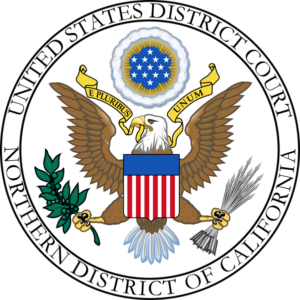 By Gerald L. Maatman, Jr. and Sean P. McConnell
By Gerald L. Maatman, Jr. and Sean P. McConnell
Duane Morris Takeaways: On February 2, 2024, Judge Yvonne Gonzalez Rogers of the U.S. District Court for the District of Northern California granted Plaintiffs’ motion to certify a class of purchasers of one or more iOS applications or application licenses from Defendant Apple, Inc. (“Apple”) or who paid for one or more in-app purchases since July 10, 2008 in In Re Apple iPhone Antitrust Litigation, No. 4:11-CV-06714 (N.D. Cal. Feb. 2, 2024). The Court rejected defense arguments that class certification should be denied on the grounds that the model of Plaintiffs’ expert revealed millions of uninjured class members and that individual issues would predominate. Instead, the Court found that the model showed an estimated 7.9% of the class is uninjured and that with more complete data the model will be capable of showing antitrust impact on a class-wide basis.
In Re Apple iPhone Antitrust Litigation is required reading for any corporate counsel handling antitrust class action litigation involving claims by end consumers.
Case Background
Plaintiffs are purchasers of iPhone applications (apps), app subscriptions, and/or in-app content via the iPhone App Store. Defendant sells iPhones and requires app purchases to be made via the App Store. Plaintiffs claim that Apple charges App Store developers supracompetitive commissions that are passed on to consumers in the form of higher prices for app downloads, subscriptions, and in-app purchases. Plaintiffs assert claims under § 2 of the Sherman Act for unlawful monopolization and attempted monopolization of the iPhone applications aftermarket.
In a prior ruling, the Court denied class certification. It had concluded that Plaintiffs could not establish the predominance requirement under Rule 23(b)(3) because they had not demonstrated that damages from Apple’s alleged anticompetitive conduct could be proven on a class-wide basis. According to the Court, the methodology of Plaintiffs’ expert failed to reasonably ascertain how many class members were unharmed by the alleged conduct and individual questions would predominate.
The Court’s Class Certification Ruling
In response to the Court’s ruling, Plaintiffs narrowed their class definition to only include Apple account holders who have spent $10 or more on app or in-app content.
Using that new definition, Plaintiffs submitted revised and new expert reports estimating that the proposed class includes only 7.9% unharmed members and again moved for class certification under Rule 23(b)(3). Since the Court’s prior ruling, the Ninth Circuit also rejected the argument that “Rule 23 does not permit the certification of a class that potentially includes more than a de minimis number of uninjured class members.” Olean Wholesale Grocery Cooperative, Inc. v. Bumble Bee Foods LLC, 31 F. 4th 651, 669 (9th Cir. 2022). According to the Court, the revised model can show the impact of Apple’s allegedly anticompetitive conduct across all class members, and once Apple produces the rest of its app transactional data, the model will be able to calculate the exact extent of injury suffered by each class member. Under Olean, the Court opined that Plaintiffs meet the predominance requirement.
Implications For Defendants
In Re iPhone Antitrust Litigation is another example of a federal court class certification decision turning on the existence of common, injury-producing conduct. The Court credited evidence that may be over inclusive at class certification stage of the proceedings, but is nonetheless capable of showing the impact of the allegedly anticompetitive conduct across all class members at trial.
